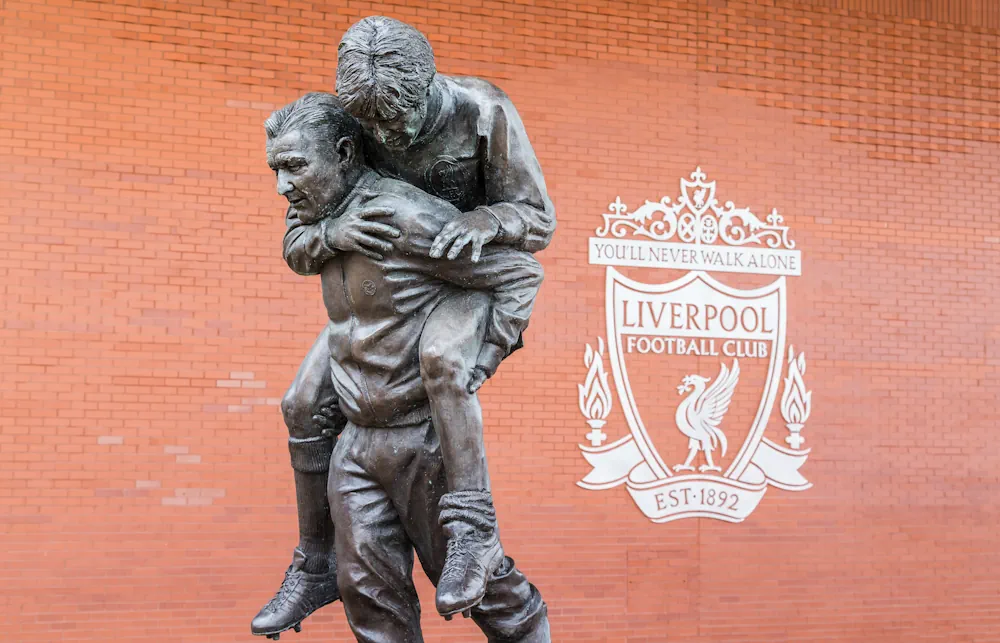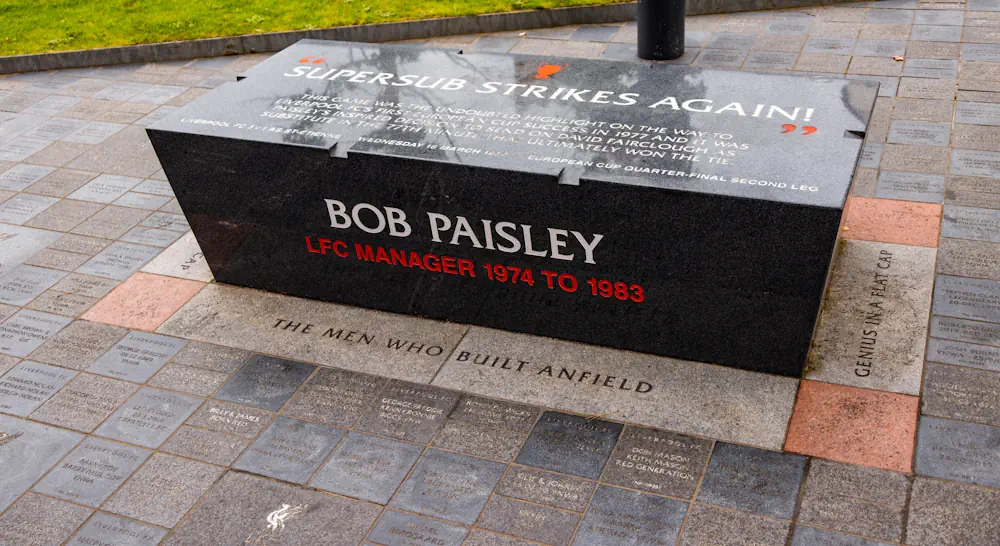Bob Paisley, mister Liverpool
There are few people who can say that they have spent much of their life serving a club and even fewer who can say that they have brought unprecedented success to that club. Today's protagonist has a fantastic life story that led him to turn Liverpool into the world power it is today.
Bob Paisley statue outside Anfield
Beginnings
Robert Paisley was born on January 23, 1919 in Hetton-le-Hole, a small town in County Durham, 11 km from Sunderland. The town is mostly mining and in fact, his father was a miner, while his mother was a housewife. They really didn't have financial problems that prevented them from having the basics, although there was nothing left over. At 14 he left school to work with his father in the mine.Later he would work as a bricklayer while playing soccer on the weekends. His dream was to play for Sunderland. However, he was rejected by the red and white club because he was very short. At the age of 18, he signed for Bishop Auckland, an amateur club, where he played as a right-back and where he won a treble (Northern League, the Durham County Challenge Cup and the FA Amateur Cup).
The army
In 1939, when Paisley was 20 years old, Liverpool's manager at the time, George Kay, approached young Bob to convince him to sign for Liverpool at the end of the 1938-39 season. The player promised him that he would do it and he kept it despite the fact that Sunderland had been interested in Paisley after seeing his performance at Bishop Auckland. For the start of the 1939-40 season, Paisley featured in Liverpool's reserve team pre-season, where he participated in two friendly matches before football was suspended in England due to the start of World War II.The native of Hetton-le-Hole was called to serve in the British Army although he remained on English soil until 1941, which allowed him to support himself by playing football sporadically with permission from his superiors. His first experience abroad was in Egypt, where it took him 10 weeks to arrive because the troop ship had to travel around the African continent to reach his destination. In Egypt he participated in the battles of Tobruk and El Alamein and suffered an injury that left him temporarily blinded by the sand resulting from an explosion from an attack by German aircraft.
A couple of years later, in 1943, he would go to Sicily, Italy, and in 1944 he would be part of the operation to liberate Rome. He remained in the Italian capital until 1945 when he returned to England, the year where he met his wife with whom he would marry a year later and with whom he would have 3 children. Upon returning to England, he was able to return to Liverpool and pick up where they left off.

Bob Paisley memorial at Walk of Fame outside of Anfield Stadium
His time in Liverpool
On January 5, 1946, 6 and a half years after signing for Liverpool, he made his official debut in an FA Cup match against Chester City and against Chelsea in the league, on September 7 of that same year. In the 1946-47 season, he would be part of the Liverpool team that won the league after 24 years, under the command of George Kay and players such as Jack Balmer and Albert Stubbins.The rest of his career as a football player at Liverpool would mix some good moments, such as the goal in the FA Cup semi-final against city rivals Everton, and other bad moments, such as not being part of the team for the final of that same edition of the cup. In 1954, he would retire as a professional football player although he would remain at the club as a physiotherapist, a role for which he seemed to have a certain facility.
He would later serve as reserve team coach for a time until 1959, when Bill Shankly arrived at the club, who promoted him to first team coach, a position he shared with Reuben Bennett and Joe Fagan. Shankly decided to form his staff with coaches who were already in the club and not bring his own staff as a sign of confidence in the work of the network club's coaches. That quartet would begin the tradition of the famous Anfield Boot Room, which was nothing more than a small room where Shankly and his coaches met daily to discuss tactics, strategies, plays, etc. The members of that room, in the future, would bring many successes to Liverpool's showcases.
At that time, Liverpool was in the Second Division although Shankly's vision was to turn the club into a European power and after the promotion of 1962, an era began where the club would win the First Division 3 times, the FA 2 times Cup, 3 FA Charity Shield and a UEFA Cup. In 1974, Shankly felt the exhaustion of so many years at such a big club and decided to retire. A year earlier, his wife had advised him to retire, however the manager decided to continue for another year and leave victoriously, having won the 1974 FA Cup. Years later, Shankly would declare that his only regret was not having won the European Cup.
Paisley was offered the position of manager of Liverpool, an offer he initially rejected, hoping that Shankly would change his mind. However, this did not happen and Paisley had to take the position. "The last thing in the world I would have wanted was to accept that position," he declared many years later. Despite this, nine years later, he would leave the club as the most successful manager in the history of English football, having won 20 trophies, including six First Division titles and three European Cups (won consecutively, becoming the first manager to do so), fulfilling the aspiration of his predecessor.
In 1983, he would step down and his replacement would be Joe Fagan, another member of the Boot Room who would also win the European Cup with Liverpool. From that moment, he would fulfill various roles in the club as a director or advisor until his death in 1996, after several years suffering from Alzheimer's disease.
